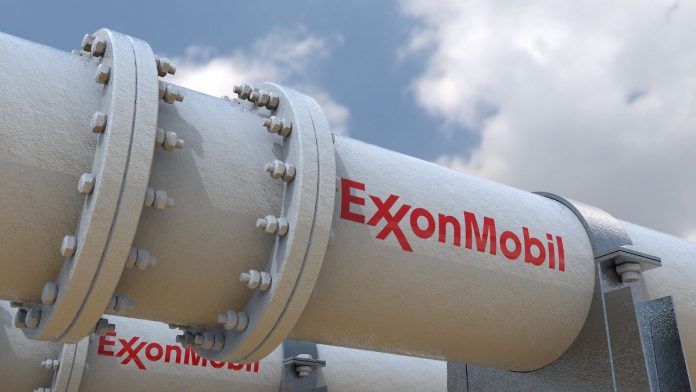The EU – a bureaucracy monster?
Exxon threatens to withdraw billions for climate projects
This audio version was artificially generated. More info | Send feedback
The US oil giant Exxon is putting pressure on: If Brussels doesn't take action against environmental bureaucracy, the company will invest “in other parts of the world”. The regulatory hurdles are “laborious” for companies and are responsible for the “de-industrialization of the European economy”.
Billions in investments by Exxon Mobil for important climate projects in Europe are in jeopardy. As the “Financial Times” writes, citing the president of the company's product solutions division, Karen McKee, the US oil giant now wants to seriously reconsider investments in Europe because of high bureaucratic hurdles if Brussels does not provide a remedy.
The US oil company has earmarked $20 billion for decarbonization projects between 2022 and 2027, the newspaper quotes McKee. In view of the increasing frustration with the regulatory burden for the implementation of projects in Europe, Exxon will now – contrary to planned – give preference to “other parts of the world” in its projects, it is said. Just in December, Exxon announced a so-called CCS pilot project, a process for the capture and storage of carbon dioxide (CO2), which was to be co-financed with 30.5 million from EU funds.
Exxon does not see itself as an isolated case, but rather blames the regulatory hurdles for the increasing “de-industrialization of the European economy”. Projects in the EU involve “slow and arduous” approval and financing processes, said McKee. The culprit is the ambitious climate regulations, which have “very negative effects” on companies. Companies no longer have confidence in the predictable policies that are necessary for long-term investments.
Industry bosses call for European “Industrial Deal”
The threat from the Exxon boss reflects the growing discontent of many companies. They consider the bureaucracy in the EU to be harmful to business. It is no coincidence that Exxon's criticism fell on the day on which an important business meeting took place in Belgium. According to media reports, Prime Minister Alexander De Croo met this Tuesday with 70 leading representatives from business and industry to adopt a declaration that is intended to make the European location more attractive. From Germany, top managers from the chemical company BASF itself, as well as industry representatives from Evonik, Covestro and Bayer were present at the BASF site in Antwerp. Also present: cement manufacturers such as Heidelberg Materials. Foreign companies took part: Exxon Mobil, TotalEnergies, ArcelorMittal and the chemical giant Ineos.
The group's fear: Europe could risk losing out in the race with China and the USA to introduce renewable energy and the technologies required to reduce industrial emissions. In Antwerp they therefore presented their idea of a European “Industrial Deal” as a complement to the “Green Deal”. Their main demands, in addition to reducing bureaucracy, are to make energy cheaper and promote the financing of clean technologies. The aim of the initiative is to maintain “high-quality jobs for European workers in Europe,” according to the document that was previously available to the “Handelsblatt”.
High industry for industry
The European Union economy is in a prolonged phase of economic near-stagnation. It narrowly avoided recession last quarter. The EU's Green Deal is not just a mammoth project; trillions of euros are needed to implement it. It envisages that CO2 emissions will fall by 55 percent this decade. By 2040, 90 percent should be eliminated, and by 2050 net greenhouse emissions should be zero.
Important for this climate strategy is the so-called “Fit for 55” legislative package, which includes measures in various areas such as energy, transport, industry and agriculture. It is not just the European Investment Bank that plays a key role in financing. In the end, high costs arise, especially for industry. Your criticism: The EU had promised gentle transitional regulations, but so far it has failed to do so.


